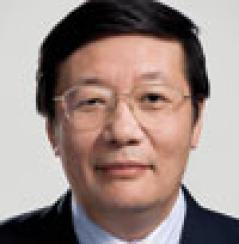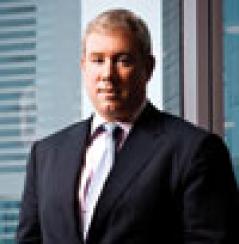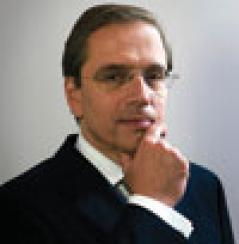When Sheikh Abdullah al-Salem al-Sabah established the Kuwait Investment Board in 1953 to invest his country’s surplus oil revenues, he hoped to generate earnings for future generations and diversify the economy away from its dependence on oil. The sheikh was clearly a farsighted leader, but surely even he would have been surprised by the development of the renamed Kuwait Investment Authority, which now manages an estimated $213 billion, and its imitators.
Slowly, other governments followed in Kuwait’s footsteps, including Abu Dhabi and the state of Alaska in 1976 and Singapore in 1981. The trickle has turned into a torrent in the the past few years as countries ranging from China and Russia to tiny Timor-Leste have set up sovereign wealth funds of their own. Those funds’ coffers have been filled to overflowing of late with export earnings lifted by soaring trade volumes and booming oil and commodities prices.
Sovereign wealth funds have burst into the public consciousness as dramatically as hedge funds did in the early 1990s after George Soros famously broke the Bank of England. Fitting them comfortably into the global financial system is an urgent priority. So far the results of their activities have been benign, if not downright positive. Just try to imagine where the global financial system would be today without the billions of dollars that the the Abu Dhabi Investment Authority, China Investment Corp. and Temasek Holdings have spent to prop up such pillars of the financial system as Citigroup, Merrill Lynch & Co. and Morgan Stanley. And yet, just as they did with hedge funds, politicians and regulators are debating whether sovereign funds are an unalloyed good or a force for mischief, and whether and how to regulate their activities.
The funds’ sheer size and impressive growth go a long way toward explaining the unease. Surging oil prices have fueled the growth of funds like ADIA, Norway’s Government Pension Fund - Global and Russia’s new National Welfare Fund, while dynamic export-led growth has generated revenue flows for the likes of CIC, the Government of Singapore Investment Corp. (GIC) and Korea Investment Corp. The world’s 30-odd sovereign funds control an estimated $3 trillion — more than the hedge fund and private equity industries combined — and that total could climb to $10 trillion by 2013, according to International Monetary Fund estimates.
Combine that size with secrecy and the potential for political influence, and you have the makings of controversy. Few sovereign funds, Norway aside, publish much meaningful information about their investment strategy or performance — or even, in some cases, their size. The IMF puts ADIA’s portfolio at anywhere between $500 billion and $875 billion.
Any entity managing such sums deserves scrutiny. The fact that sovereign funds have political masters has only increased calls for transparency so outsiders can see whether funds are investing for commercial returns or political purposes.
To help shed light on the matter, Institutional Investor in this issue offers an in-depth look at some of the leading sovereign wealth funds, as well as a few aspiring newcomers. We explain why CEO and CIO Yngve Slyngstad is leading an activist campaign at Norway’s pension fund in a bid to boost returns, and why chairman Lou Jiwei is eager to reassure foreign critics about CIC’s strategy. Our package also looks at the teething difficulties encountered by Korea Investment Corp. and the ambitions Russia has for its National Welfare Fund. Last, we examine the strategies of some of the biggest global banks in trying to cash in on the sovereign wealth explosion.
The attention from II and others is making itself felt. After initially rejecting demands for more openness, most sovereign funds are coming to see that it is in their interest. Singapore, which suffered a political backlash in Thailand after Temasek bought control of Thailand’s Shin Corp. from the family of former prime minister Thaksin Shinawatra two years ago, joined with Abu Dhabi and the U.S. Treasury earlier this year to endorse voluntary principles that call on sovereign funds to base investments on commercial rather than political criteria, to provide more information about their investment strategy and performance and to compete fairly with private sector players. These principles look likely to form the basis of a broader accord that the International Working Group of Sovereign Wealth Funds, co-chaired by the IMF, aims to unveil next month.
Transparency isn’t just a sop to the West. It’s also important for the sovereign funds’ domestic constituencies. Some funds have taken a beating for their performance. China’s CIC made a splash with its first overseas investment — the $3 billion purchase of a 9.9 percent stake in Blackstone Group in June 2007 — only to see the private equity firm lose 45 percent of its market value over the following year. CIC has rivals within China, notably at the State Administration of Foreign Exchange, the central bank arm that has been making overseas equity investments of its own in recent months.
Greater transparency will be welcome if it defuses political tensions and puts the spotlight where it belongs — on performance. Sovereign funds are one of the most visible manifestations of the transformation of the global economy. How rising powers such as China, Russia and countries in the Gulf and Latin America manage their wealth will be critical, both for their own populations and the health of the global economy. Fortunately, those destinies are closely interrelated. “We are a stakeholder in global markets,” CIC chairman Lou tells II in an exclusive interview (see page 76). “We want to see long-term stability in global financial markets because long-term stability is to our benefit.”
Other investors should be only too happy if Lou and other sovereign wealth managers succeed.

| 
| 
| 
| 
|
| Lou Jwei Spells Out His Plans for CIC | Norway Takes an Activist Turn | Bankers Flock to the Gulf and Its Riches | The Two Marsters at Korea's KIC | Dmitry Pankin on Russia's New Wealth |





